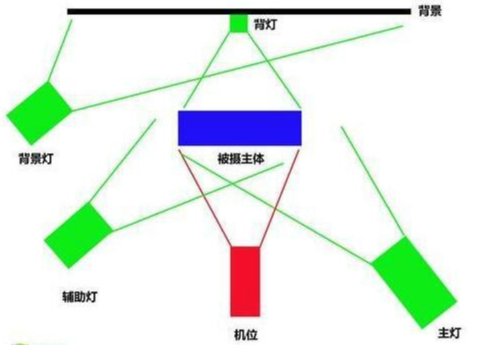Photography lighting settings: three-point lighting
What is three-point lighting? Three-point lighting is basically a method or a lighting setting. You can use three different light source positions to illuminate objects in the scene. Placing lights in this lighting setting will help create a different atmosphere for your images.

Three-point lighting consists of three types of lighting in different locations, this article describes in detail:
1. Main light
As the main light source of the lighting object, the key light source is usually the brightest light source and will determine the position of the shadow. Generally, it is placed at an angle of 45° to the camera, slightly higher than the line of sight of the subject, and tilted downward toward the subject.
2. Fill light
Think of fill light as a secondary light source on the object, which allows you to "fill in" the shadow it casts and control the intensity of its light. To achieve this function, it is usually placed at an angle of 45° with the camera on the side opposite to the main light. Generally, the brightness of the fill light is only half or less of the brightness of the main light, and can be adjusted according to the intensity of the desired shadow. In portraits, it is usually located at the level of the eyes to help fill in the shadows under the eyes and chin.
.jpg)
3. Backlight
The backlight is sometimes called an edge light and is located directly opposite the main light and is used to illuminate objects from behind. Doing so will add depth to your portrait. Because of its location, the backlight will place "edge" light around the outline of the subject-usually highlighting the hair and shoulders. Usually, its brightness is much smaller than the main light.
Now that you know the three types of lights you need and how to place them, you should now be able to set up three-point lighting. By the way, the backlight is different from the background light, which usually illuminates the background of the scene, not the characters.
Common studio lighting arrangements
The importance of photography lighting